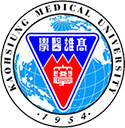– Kaohsiung Medical University Chung-Ho Memorial Hospital –
KMUH Collaborates with 8 Healthcare Institutions to Safeguard the Health of Indigenous Communities
Kaohsiung Medical University Chung-Ho Memorial Hospital (hereafter referred to as KMUH) has devoted nearly 30 years to serving the remote indigenous districts of Taoyuan, Namasia, and Maolin in Kaohsiung through the Integrated Delivery System (IDS) Program under Taiwan’s National Health Insurance. To further improve healthcare quality, the National Health Insurance Administration (NHIA) has upgraded the IDS into the “Holistic Integrated Care Program for Kaohsiung City” starting this year (Year 114 on the ROC calendar). This upgraded initiative involves eight healthcare institutions, including health centers in the three indigenous districts, two medical centers (KMUH and Kaohsiung Veterans General Hospital), a regional hospital (Cishan Hospital), and local clinics (Dajia Clinic and Nibuen Dental Clinic). Together, they aim to provide higher-quality, patient-centered healthcare for indigenous communities.
The launch ceremony was held at the Maolin Multi-Functional Activity Center and was attended by officials from the NHIA Kaoping Division, the Kaohsiung City Health Bureau, KMUH, and other participating institutions. The event also featured a “Health Screening Carnival” to promote public health and build a better, healthier community for the indigenous populations.
KMUH Vice Superintendent Dr. Chia-Yen Tai emphasized that as a university-affiliated medical center, KMUH leverages its extensive experience to offer patient-centered holistic care. Guided by a spirit of sharing and social responsibility, KMUH has continuously provided medical services in indigenous regions for the past 30 years. The hospital has received numerous honors, including group awards such as the 4th Baosheng Medical Dedication Award, the 14th Indigenous Dawn Award for Outstanding Achievement in Healthcare (Non-Indigenous Group), and individual accolades such as the 14th and 15th Indigenous Dawn Awards for Contributions toIndigenous Peoples’ Development, as well as the 33rd Medical Dedication Award.
KMUH physicians are stationed at local health centers, ensuring that indigenous residents have access to near-medical-center-level care. This year, KMUH initiated the upgraded “Holistic Integrated Care Program” by inviting Kaohsiung Veterans General Hospital, along with regional hospitals and clinics to collaborate. It marks the only initiative in Taiwan involving two medical centers and multiple tiers of healthcare facilities jointly safeguarding indigenous healthcare. Due to its complexity, the program requires close coordination with the city’s health bureau and local health centers—representing a groundbreaking effort to take responsibility for regional health.
Lin Shu-Hua, Director of the NHIA Kaoping Division, noted that KMUH has been dedicated to serving Kaohsiung’s three indigenous districts for 30 years. To enhance care quality, the NHIA has expanded the care team and promoted cross-tier collaboration starting this year. The former IDS program has thus evolved into the “Holistic Integrated Care Program.” In addition to establishing a patient-centered and holistic care model, the program has proactively strengthened health promotion in the early stages ofdisease management, while enhancing chronic disease care and ensuring a seamless transition to long-term and palliative care, to embody the philosophy of holistic health care and continuouslysafeguarding the health of remote populations.
As its name suggests, the “Holistic Integrated Care Program” focuses on comprehensive, patient-centered care, driven by preventive medicine. Through early diagnosis and health management, individuals can receive proper care before illness strikes—addressing the previous pattern of delayed treatment due to uneven healthcare access and helping reduce medical costs. By integrating resources from the eight participating healthcare institutions at various levels, the program aims to build a high-quality and accessible care network, implement early disease screening, and prevent sudden health crises.
Medical services under the program include acute and specialized care, chronic disease management, preventive care, health screening, community health building, and telemedicine. These services address local shortages, particularly in specialist care, enhancing medical quality, accelerating access to professional medical advice, and protecting the healthcare rights of indigenous populations.

▲ The launch of the Holistic Integrated Care Program featured KMUH Vice Superintendent Dr. Chia-Yen Tai and NHIA Kaoping Division Director Lin Shu-Hua (left), placing symbolic pieces to complete the full image of Kaohsiung’s integrated care vision.

▲ Director Lin Shu-Hua delivers remarks at the event.

▲ The program hopes to create a new model for indigenous care through collaboration among eight institutions.

▲ KMUH Vice Superintendent Dr. Chia-Yen Tai delivers a speech at the launch ceremony.
